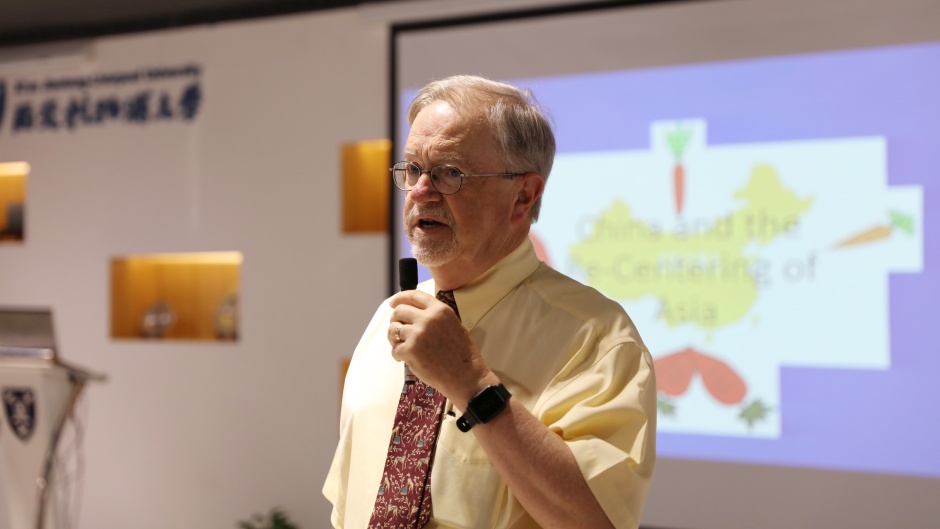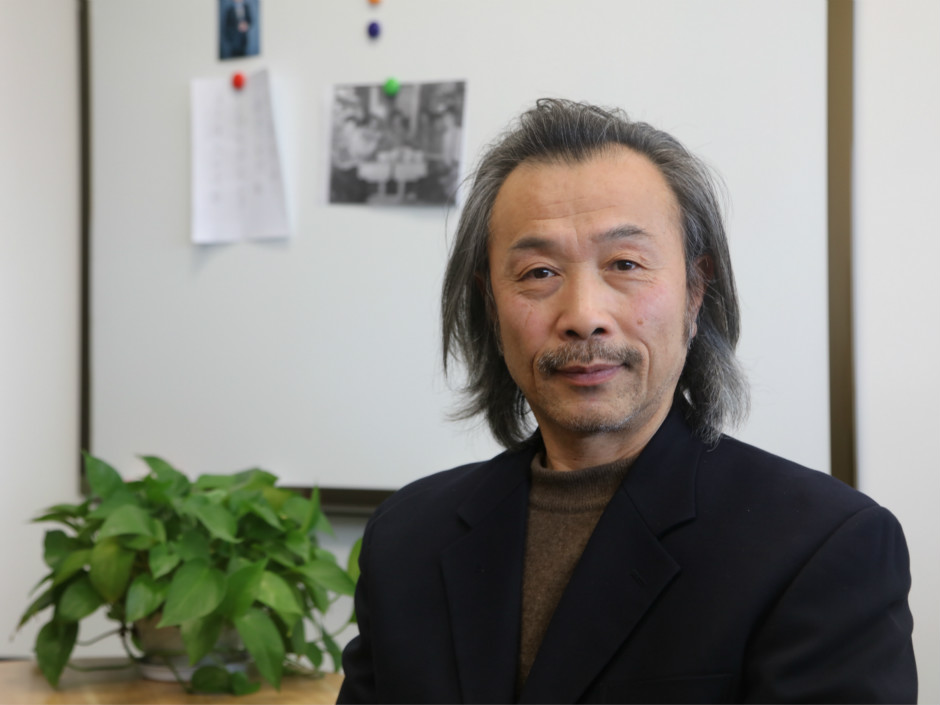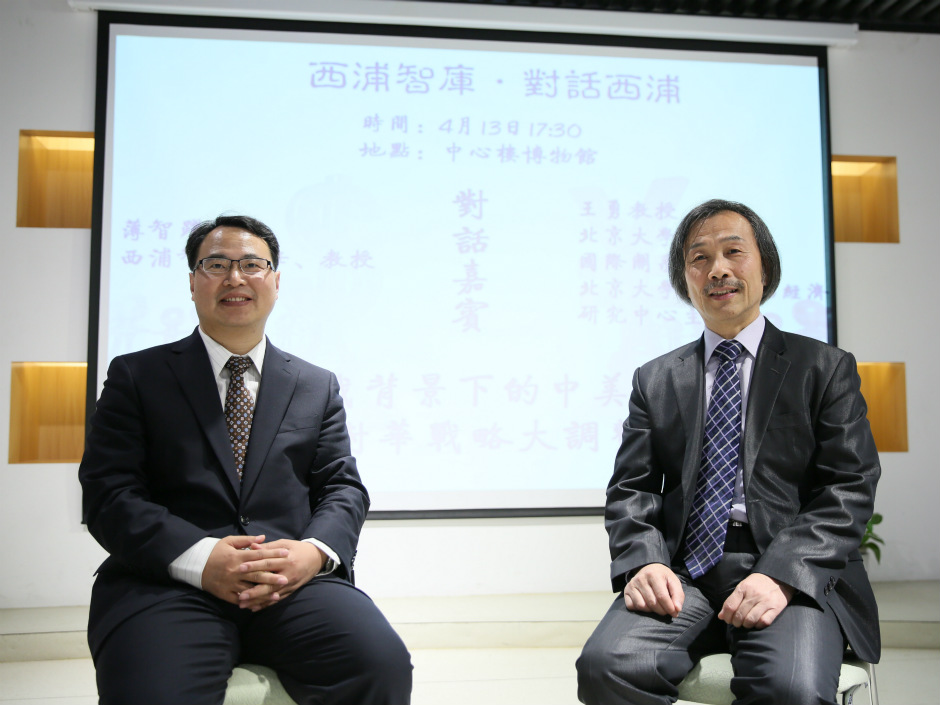29 May 2018
‘China and the Re-Centering of Asia’ was the topic of the 2nd XIPU Dialogue, hosted by the XIPU Institution at Xi’an Jiaotong-Liverpool University.
Brantly Womack, professor of foreign affairs at the University of Virginia, was invited to speak at the event chaired by Professor Adam Cross, head of the Department of International Relations at XJTLU. Director of the XIPU Institution Professor Zhiyue Bo also spoke at the event.

“Traditional China remained central to East and Central Asia despite centuries of discord as well as conquests by outsiders,” said Professor Womack (pictured above).
“While China’s internal cohesion and preponderance of power fluctuated, the three constants underlying its centrality were its presence (central location and absence of alternative centres), its population, and its productivity,” he said.
Professor Womack noted that in the current era China’s ambition is to re-establish its centrality, but the diplomatic culture appropriate to Asian centricity is neither the paternalism of the tribute system nor the domination of modern imperialism.

“China’s major challenge will be to avoid slipping into the traditional complacent view that centrality implies superiority,” said Professor Womack.
MSc Investment Management student Dannis Joseph (pictured above) raised the issue of last year’s Bhutan border controversy which China became embroiled in and suggested that China’s policies in forming international connections could hamper the security of partner nations.
Guo Chen (pictured below), studying BSc Economics and Finance, asked whether the evolution of the connectivity of countries is embedded with power diffusion or transitions in governance, "because governance and power are not exactly the same things". He also asked Professor Womack's opinion on how Central Asian countries might influence China's re-centering of Asia.

Prior to his presentation, Professor Womack was presented with a letter of appointment as a board member of the XIPU Insitution by Professor Bo (pictured below, left).
The first XIPU Dialogue session saw Professor Bo and Professor Yong Wang from the School of International Studies at Peking University discuss US-China relations.
The XIPU Institution conducts research on local development for the government of Suzhou, integrating professional knowledge from universities, governments and industries to break down barriers and provide guidance to government on decision making and policy setting.

by Danny Abbasi; photos by Liping Tian
29 May 2018
RELATED NEWS

The XIPU Institution at XJTLU welcomes Professor Zhiyue Bo as director
Professor Zhiyue Bo has officially joined Xi’an Jiaotong-Liverpool University as director of the newly-established XIPU Institution which aims to promote wo...
Learn more

Sino-US relations highlighted in first session of XIPU Dialogue
What is the prospect of the Sino-US trade game? Where is Sino-US relations heading? A dialogue, held at Xi’an Jiaotong-Liverpool University, explored trends ...
Learn more








